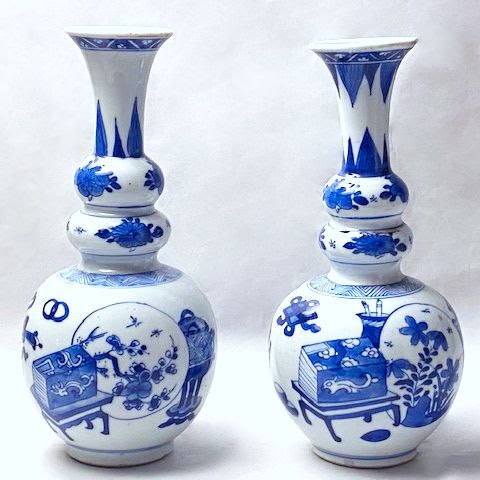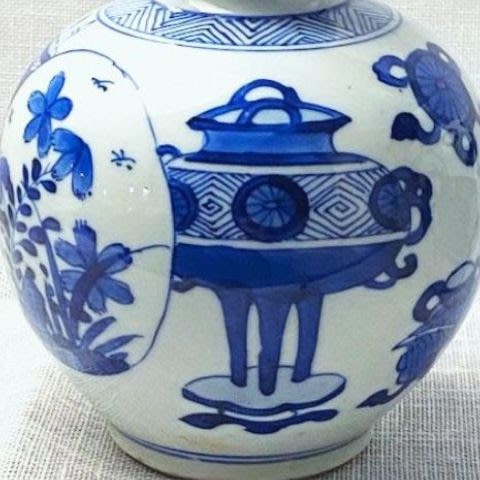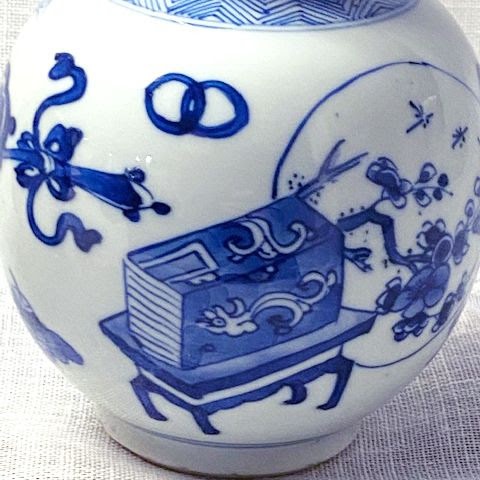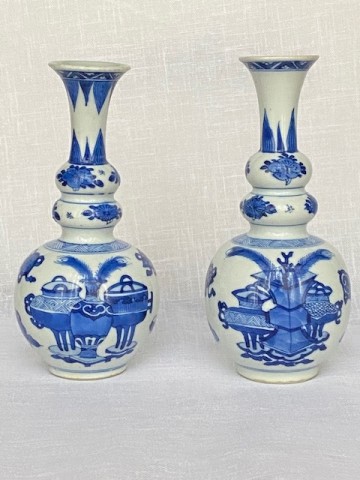BG65
Further images
Of triple gourd form decorated in vibrant shades of underglaze blue, raised on a short straight foot, the slender cylindrical neck rising to everted, trumpet-shaped mouth rim; the lower gourd exquisitely decorated with on one side the 'Hundred Antiques' motif of auspicious symbols, including conjoining rings, a magic knot, two censers and an archaistic vase with feathers in it; the other side with a round panel filled with flowering plants, framed by one censer and a book on a stand, the two upper gourds with sprays of flower heads the slender necks one with stiff upward lappets, the other neck with a further band of downward facing lappets, both with a band of triangle work around the mouth rim; the bases glazed.
Literature
For similar shape triple gourd vases but with figure decoration see the 1721 Inventory of the Augustus the Strong collection, where they are catalogued as ‘6 stk bouteillen mit drei Bauchen’ (six bottles with three bellies). Four of these vases are in the collection at the Zwinger Museum, Dresden. Click here to view one of the vases in the Zwinger Museum.
another example of a triple gourd Kangxi period vase can be seen in the Frick Collection, USA. Click here to view
In Christiaan J.A. Jörg, ‘Chinese Ceramics in the Collection of the Rijksmuseum, Amsterdam’, Rijksmuseum, Amsterdam, 1997, pl. 180, pp. 164-165. Jörg discusses the how the shape of triple gourd vases – known as knobbelfles, or ‘bulb bottles’ in Dutch - were well suited for decorative purposes.
The 'Hundred Antiques' motif is made up of many auspicious symbols, each with a specific meaning. Among those depicted on the present vases are: books, which are symbols of learning and one of the Four Signs of a Scholar; the tripod, an ancient ritual vessel which symbolises filial piety; flowers, which symbolise beauty and harmony; and the vase (ping) which symbolises peace, as the Chinese word or 'vase' is a homonym for peace.








